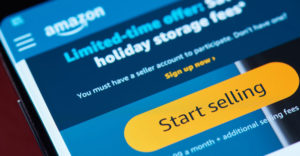Keeping tabs on how other companies are adopting technologies and leveraging changes in the marketplace to push their business forward can be highly instructive. It’s interesting to watch various trends take shape and gain momentum — and there’s no doubt that what’s hot right now is social media marketing.
When Oprah devotes an entire show to Twitter, there’s no denying the fact that social networking has hit the mainstream. Consequently, marketers are scrambling to leverage the various online communities to push their brands and make some money. While the motivation driving marketers to act quickly is obvious, they need to take a step back and take a broader look at what motivates their consumers and how social media can be leveraged to meet their marketing objectives.
Going Viral
So far, most media and high-profile e-commerce sites have jumped on the “social sharing” bandwagon, providing social networking buttons next to articles, promotions, or products that allow readers to easily share the item with their network of choice. Scroll down to the bottom of any Wall Street Journal article, and you can then share the report with your network on social media platforms such as LinkedIn, Facebook, and others.
While this capability is important, it’s just the first step in leveraging social media marketing. It does nothing to tap into your existing channels or develop a virality that extends its reach.
Understanding motivation is critical. If an airline will give me 25,000 miles for signing up for a newsletter, then OK, I’ll probably do it. However, there’s no way I will share my address book for that many miles — or any amount, for that matter. The airline has to find another motivator that reflects positively on me within my network — for example, a green promotion that provides carbon offsets to compensate for the environmental impact of business travel.
Social media can’t be treated like a traditional marketing channel; it’s essential to understand what motivates people to share. Then, put on your digital marketer hat and create content accordingly.
The key to being successful with social media is creating a viral campaign that capitalizes on the social motivators that get users to share in the first place. Just placing a social sharing link on a Web page or in an email doesn’t mean a user will be prompted to share it. However, a company that figures out what makes its users tick and then taps into the right social motivator can propel its message into the far reaches of cyberspace.
Four Social Motivators
Whether people are online or offline, the motivators that spur people to share information fall into four buckets: Self-Expression, Status Achievement, Altruism, and Self-Serving.
Self-Expression
In the traditional direct marketing world, people are motivated by cash — or saving it in the form of coupons, discounts, etc. Within social media, the biggest motivator is often self-expression. That means finding a promotion that allows customers to express themselves, such as customizing a Nike shoe they can share with friends.
Status Achievement
Most people like to brag, and that tendency is multiplied by the Web. Creating a promotion that allows customers to improve their status amongst their peers is an effective way to get them to share with their network. For example, Amazon.com might reward loyal shoppers with early access to a new product release and then encourage them to share this advanced access with their friends. Putting shoppers in a position of power among their peers is a big motivator.
Altruism
In addition to bragging, people also like to do good — especially when it’s convenient. In the airline mentioned above example, allowing consumers to share carbon offsets taps into a person’s altruistic nature. This promotion makes the consumer feel good, not only for helping to save the planet but also for helping their friends feel good about joining the cause. In this scenario, consumers are motivated to share by the opportunity to do something well — not because of some physical reward they will get back in return.
Self-Serving
While self-serving offers work well offline (coupons, discounts, etc.), this motivator is less potent in social networking. However, that’s not to say it can’t be effective if done correctly. Combining a self serving-offer with one that taps into status achievement is one way to maximize results. For example, you can give a person a $100 gift certificate for forwarding a $20 coupon to 10 friends. The consumer wins big — a financial reward plus status among friends.
Planning the Campaign
Creating a campaign that leverages the motivator most appropriate for a company’s message and understanding the “audience feel” will go a long way toward helping to ensure its success. It’s impossible to run a successful business without knowing much about its customers. Any information that helps companies figure out what motivates them to share social media content is invaluable.
It’s essential to find a solution that measures the effectiveness of a social media marketing program. Once a company knows its biggest influencers, it becomes possible to target them with appropriate messages and promotions.
With any hot trend, marketing companies quickly offer solutions that help companies take advantage of the momentum, and it’s no different with social media. New technologies in the marketplace allow marketers to integrate social media with proven channels like email marketing to create viral campaigns that can be tracked and optimized in real time.
This may seem like a lot of work, but the return on investment will be worth the effort. Online audiences are savvy; they quickly see through misguided efforts to foster their allegiance. However, a well-designed social media marketing campaign that uses the right motivators can help a company create an army of brand advocates who will take its message to the trenches.
There’s no question that the marketing potential of social media is huge, but it would be folly to rush in without a cohesive plan. The result could mean limiting its potential for success and damaging the company’s reputation in the process.
Sam Cece is CEO of StrongMail Systems, a provider of marketing and transactional email solutions designed to enable businesses to deliver more relevant, timely, and cost-effective messages.















































what software do you recommend to monitor the success of a campaign?
thanks for the great information.